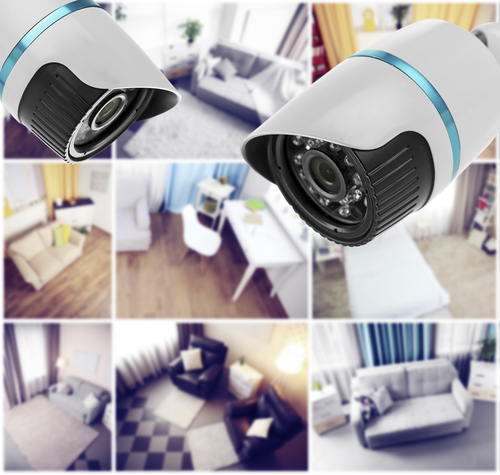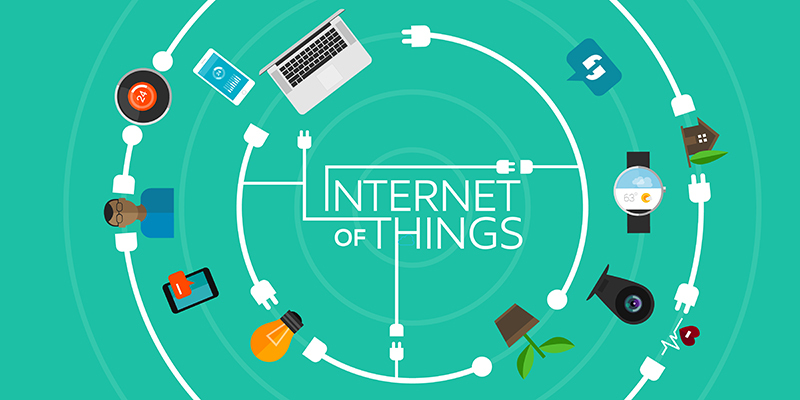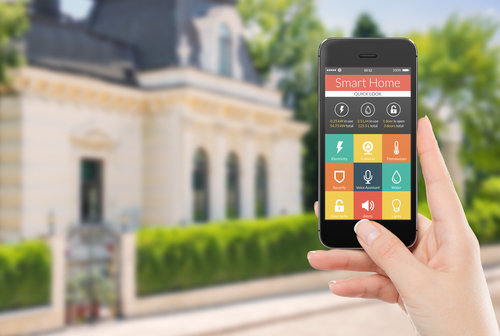Moving? Make Sure Your New Home is Safe and Secure May 19th, 2016

Home Safety Checklist for Buying a New Home
Making a move is always a stressful process. But, when you find the next perfect home for you and your family, the excitement overtakes the stress, and suddenly you can’t move fast enough. An amazing floor plan, great location, and fantastic schools- this is the house for you! Before you make this major purchase, though, don’t overlook your new home’s security. It’s always a good idea to thoroughly vet the home’s safety features. A few questions to ask to know what you’re buying into are: what kind of home security system does the house have?; If it doesn’t currently have one, can a security system easily be added? Can the home security system easily be upgraded to add home automation? If major upgrades are necessary, is that something that can be included in negotiations of your new home?
Below is a home safety checklist to help you ask these questions and more, and make an informed decision on the safety profile of your new home.
Home Security System and Automation
Statistics have repeatedly shown that a security system is the single best home invasion deterrent. The home you are looking at might already have one, and if so, check it out and see if it is up to par. First, find the location of all the motion sensors, does the placement both inside and outside of the home make sense? If not, consider adding more. Also, all doors and windows should have sensors to let you know when they’re opened or closed. Make sure big windows also have glass-breaking sensors. If not, that is also an easy add-on. Video cameras both visible and hidden are great safety features. Smart home automation can allow you to watch the surveillance video from virtually anywhere. Other smart home upgrades are also worth looking into when you are improving a house’s safety features. For example, imagine one hectic morning you forgot to turn on the alarm before you left for work. Rest easy. An app on your smart phone can let you turn on your system from afar. Or, a simple text from a smart app can let you know someone is at your door, and you can view the live video feed either from your home or from somewhere else. Smart locks can help you make sure the door is locked, or you can let your housekeeper in and out without having to give them a key. Smart home upgrades are an easy and affordable way to ensure safety at your new home. According to Consumer Reports, smart devices can also increase your home’s value, on average bumping up 3-5%. Learn about easy, smart home upgrades here.
Use Online Tools
There are many online tools to help you vet the safety of the neighborhood. Spotcrime.com is one of the most popular crime tracking sites. Simply enter an address and the website will use data it’s gathered from law enforcement agencies, and the news, to tell you what crimes have been committed in the area. Get a comprehensive list of registered sex offenders in an area through familywatchdog.us. Nextdoor.com is also a great site to join and browse the crime and safety section of the neighborhood you are considering. This online community forum will give you direct access to the news, opinions and concerns of residents in your neighborhood. Of course, a good real estate agent should have some good information regarding crime in the area, and you can always call the local police precinct and get statistics.
Landscape Review
Love the landscaping at the new potential house? That’s great, but you should take a close look at safety concerns. Make sure it is not too overgrown. The bushes and trees should be trimmed, especially near windows or doors where burglars can hide. If they aren’t trimmed up, make sure it is in your budget or easy to do once you make the purchase.
It’s All About the Lighting
You also want to check the outdoor lighting. Is there a working porch light? Is the perimeter of the outside of the house well lit? Are motion detection lights in areas that need it, outside the garage and back door? Check out the house at night if possible and see if there are areas you see that need lights added. If so, can lights and motion sensors easily be added?
All Systems Go?
Inside the house, you want to make sure all the electrical systems are up to date. Outdated electrical systems can put your house at risk for a fire. Gas appliances that don’t properly work can leave you at risk for carbon monoxide poisoning. You want to make sure that during your home inspection all the mechanical systems are checked out and are functioning properly and up to current code.
Keep it Solid
You want all exterior doors to be metal or solid wood. If there is glass screen door, you want to make sure it’s reinforced glass so it can’t be easily broken. Do the doors open and shut well and have good locks? Deadbolt locks at least 1 inch long can provide great protection. Do the windows have locks to keep criminals out? On the flip side, can the windows be opened in case of emergency?
Say Howdy to the Neighbors
After all of that, still interested in purchasing that home? Get out and talk to the neighbors. Do they seem like they would be good neighbors? Are they friendly, available and aware? Good neighbors watch out for each other. They keep an eye on each other’s houses too. If someone suspicious is walking down the alley, you will probably get an advisory call. Another great way to assess safety in a neighborhood is to check out the community space. Is the green space cared for well? Is there a sense of pride and visible upkeep in the area? This all shows that people value their neighborhood and its safety.
A well-protected home provides a great sense security and peace of mind. Fortress Security offers all the security features you need to make sure your new home keeps you safe and sound. Give us a call or fill out an online form to request a free quote today.










